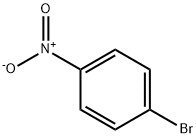Products
CAS 1094-61-7|β-Nicotinamide Mononucleotide
CAS 1094-61-7|β-Nicotinamide Mononucleotide also known as β-Nicotinamide Mononucleotide (NMN), is a compound that has gained significant attention in the field of anti-aging research. NMN is a precursor to nicotinamide adenine dinucleotide (NAD+), a molecule that plays a crucial role in various biological processes, including energy metabolism and DNA repair.
Product Description
CAS 1094-61-7|β-Nicotinamide Mononucleotide also known as β-Nicotinamide Mononucleotide (NMN), is a compound that has gained significant attention in the field of anti-aging research. NMN is a precursor to nicotinamide adenine dinucleotide (NAD+), a molecule that plays a crucial role in various biological processes, including energy metabolism and DNA repair. As we age, our NAD+ levels decline, leading to a decline in cellular function and an increased risk of age-related diseases. NMN supplementation has shown promising results in raising NAD+ levels, thereby potentially reversing some of the effects of aging. Research has suggested that NMN supplementation may improve mitochondrial function, increase insulin sensitivity, and enhance longevity. Despite its potential benefits, further research is needed to fully understand the effects and long-term safety of NMN supplementation.
| Product Name: | β-Nicotinamide Mononucleotide |
| Synonyms: | BETA-NMN;BETA-NICOTINAMIDE MONONUCLEOTIDE;BETA-NICOTINAMIDE RIBOSE MONOPHOSPHATE;3-(aminocarbonyl)-1-(5-O-phosphonato-beta-D-ribofuranosyl)pyridinium;B-NICOTINAMIDE MONONUCLEOTIDE;NMN;NICOTINAMIDE-1-IUM-1-BETA-D-RIBOFURANOSIDE 5′-PHOSPHATE;NICOTINAMIDE RIBOTIDE |
| CAS: | 1094-61-7 |
| MF: | C11H15N2O8P |
| MW: | 334.22 |
| EINECS: | 214-136-5 |
CAS 1094-61-7, also known as β-Nicotinamide Mononucleotide (NMN), is a chemical compound that plays a crucial role in various biological processes. NMN is derived from nicotinamide (vitamin B3) and ribose, and it is a key precursor of nicotinamide adenine dinucleotide (NAD+), a coenzyme that is involved in numerous metabolic reactions.
NMN has garnered significant attention in the scientific community due to its potential health benefits and its role in anti-aging. It has been found to activate a group of enzymes called sirtuins, particularly SIRT1, which are known to regulate aging and age-related diseases. By enhancing the activity of sirtuins, NMN may contribute to cellular repair and rejuvenation, leading to potential benefits in age-related conditions such as cardiovascular diseases, neurodegenerative disorders, and metabolic disorders.
In addition to its anti-aging properties, NMN has been studied for its potential role in enhancing exercise performance and improving metabolic function. Research suggests that NMN supplementation may increase endurance, improve insulin sensitivity, and promote fat metabolism, making it a promising candidate for athletes and individuals looking to enhance their physical performance.
Furthermore, NMN has shown promising results in animal studies related to neuroprotection. It has been found to improve cognitive function, protect against neuronal damage, and enhance brain health. These findings have sparked interest in NMN as a potential therapeutic agent for neurodegenerative disorders such as Alzheimer’s disease and Parkinson’s disease.
While NMN holds great promise, it is important to note that most research has been conducted on animal models or in vitro studies. Further clinical trials are needed to fully understand its efficacy, safety, and optimal dosage in humans.
Overall, CAS 1094-61-7, or β-Nicotinamide Mononucleotide, is a compound with significant potential in the fields of anti-aging, exercise performance, metabolic health, and neuroprotection. Continued research on NMN may uncover its full range of benefits and pave the way for future therapeutic interventions.





